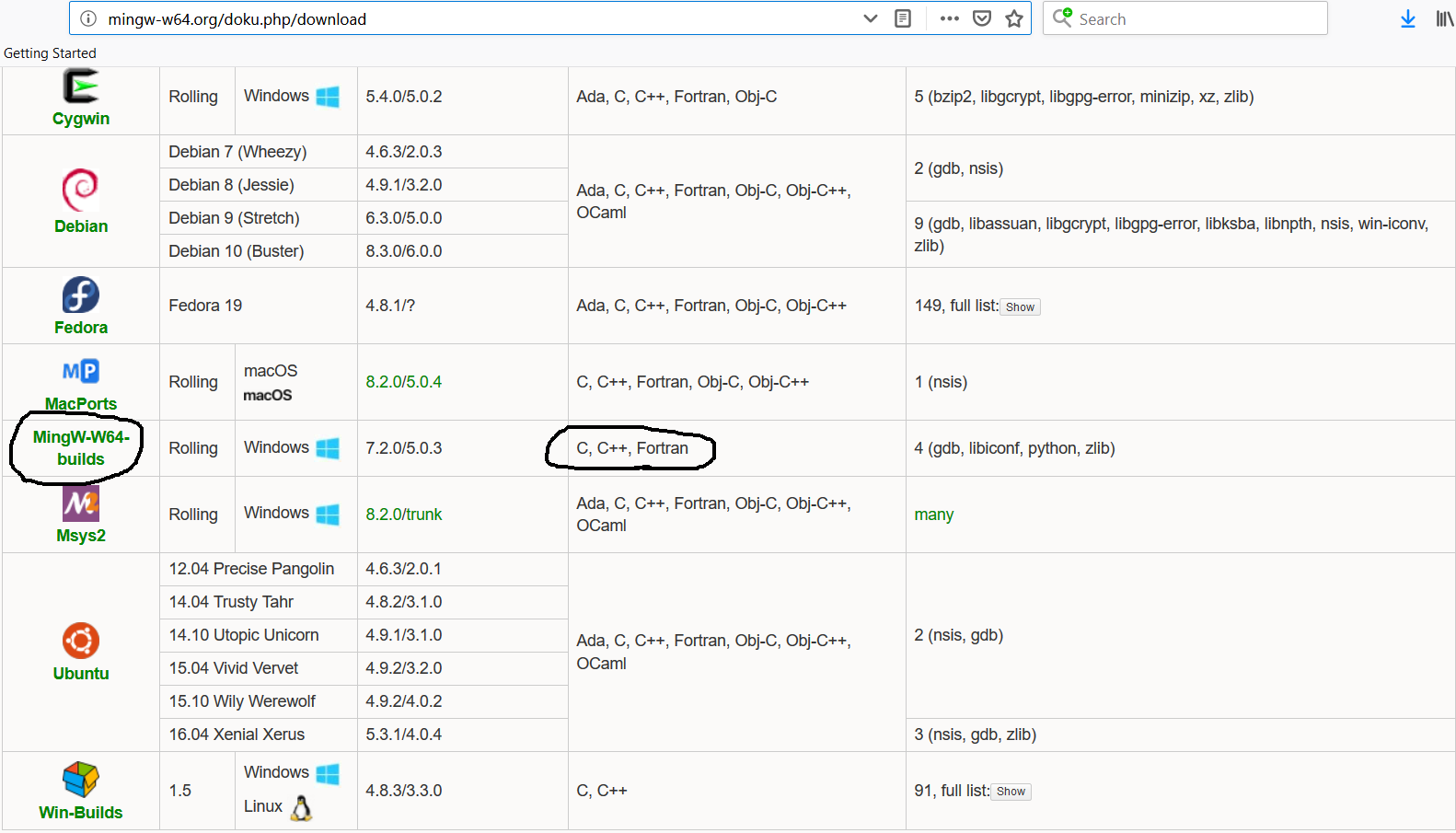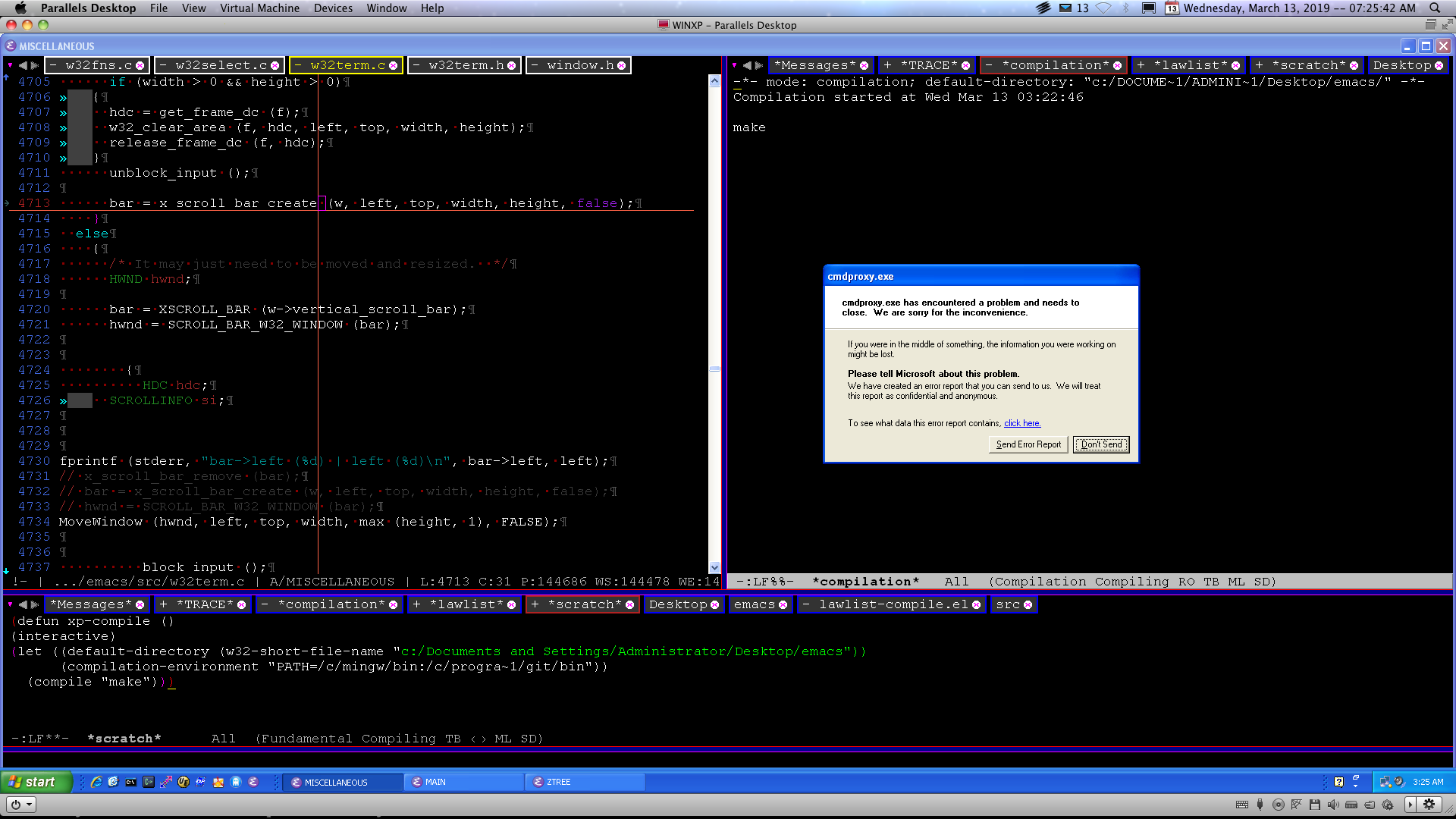
- Mingw windows generator#
- Mingw windows manual#
- Mingw windows software#
- Mingw windows windows 7#
- Mingw windows download#
These steps were completed by a user with administrator privileges.
Mingw windows software#

Mingw windows generator#

With some fairly obvious changes, these instructions will also work for building 32-bit software using Windows XP 32-bit.
Mingw windows manual#
The build environment is capable of building both 64-bit and 32-bit software, although some manual editing of configuration files is required to switch between the two.
Mingw windows windows 7#
$/.This page documents a suggested C/C++/Fortran/Python software build environment for Windows, tested on Windows 7 Professional 64-bit. Don't forget to replace the indenting whitespaces in the makefiles with actual tabs!įile: makefile.Win32Debug OUTPUT=./bin/Win32/simpleWindow_Debug.exeĬXXINCLUDES=-I./include -I./lib/Win32/Debug/mswudĬXXLIBS=-L./lib/Win32/Debug -lwxmsw31ud_core -lwxbase31ud So let's test our toolchain by building a simple application.Ĭreate the folder simpleWindow in the project folder and place the following files in it. | | ├── wxmsw314ud_webview_gcc_custom.dll | | ├── wxmsw314ud_richtext_gcc_custom.dll | | ├── wxmsw314ud_propgrid_gcc_custom.dll C:\dev\wxprojects)Īfter copying the two runtime libs libgcc_s_sjlj-1.dll and libstdc++-6.dll for the debug executables to run to bin\Win32, the Win32 parts of the filesystem tree should look something like this: Next you'll still need the headers, just copy the "include" folder somewhere (e.g. I'll leave the Win64 builds to the readers discretion. to C:\dev\wxprojects\lib\Win32\Release\). Mingw32-make -j 8 SHARED=0 RUNTIME_LIBS=static BUILD=releaseĬopy the resulting libraries (e.g. Once you've copied the libraries, delete the source folder and do it again, but this time for the release (don't forget the setup_h step): You also probably want to copy the dlls into the directory where the compiler puts your debug executables (e.g.

I also optimize all my builds for size (-Os gcc flag).

This guide is using the following toolchain: The MinGW builds that come with Ubuntu use sjlj / seh for exception handling, hence I ran into some issues when I tried to compile / link the stuff up while cross-compiling against the prebuilt libraries I created on Windows.
Mingw windows download#
The problem here was that I didn't download the correct MinGW builds for Windows. The goal I had in mind was to be able to cross-compile on Ubuntu for Windows in addition to compile natively on Windows. This was the first step where I made a mistake. Hence I decided to write an article about it that will hopefully save you some time. While it is actually really easy to build wxWidgets, I still stumbled a few times with getting my toolchain up and running.


 0 kommentar(er)
0 kommentar(er)
